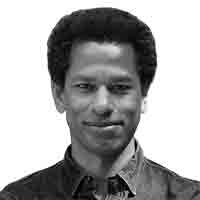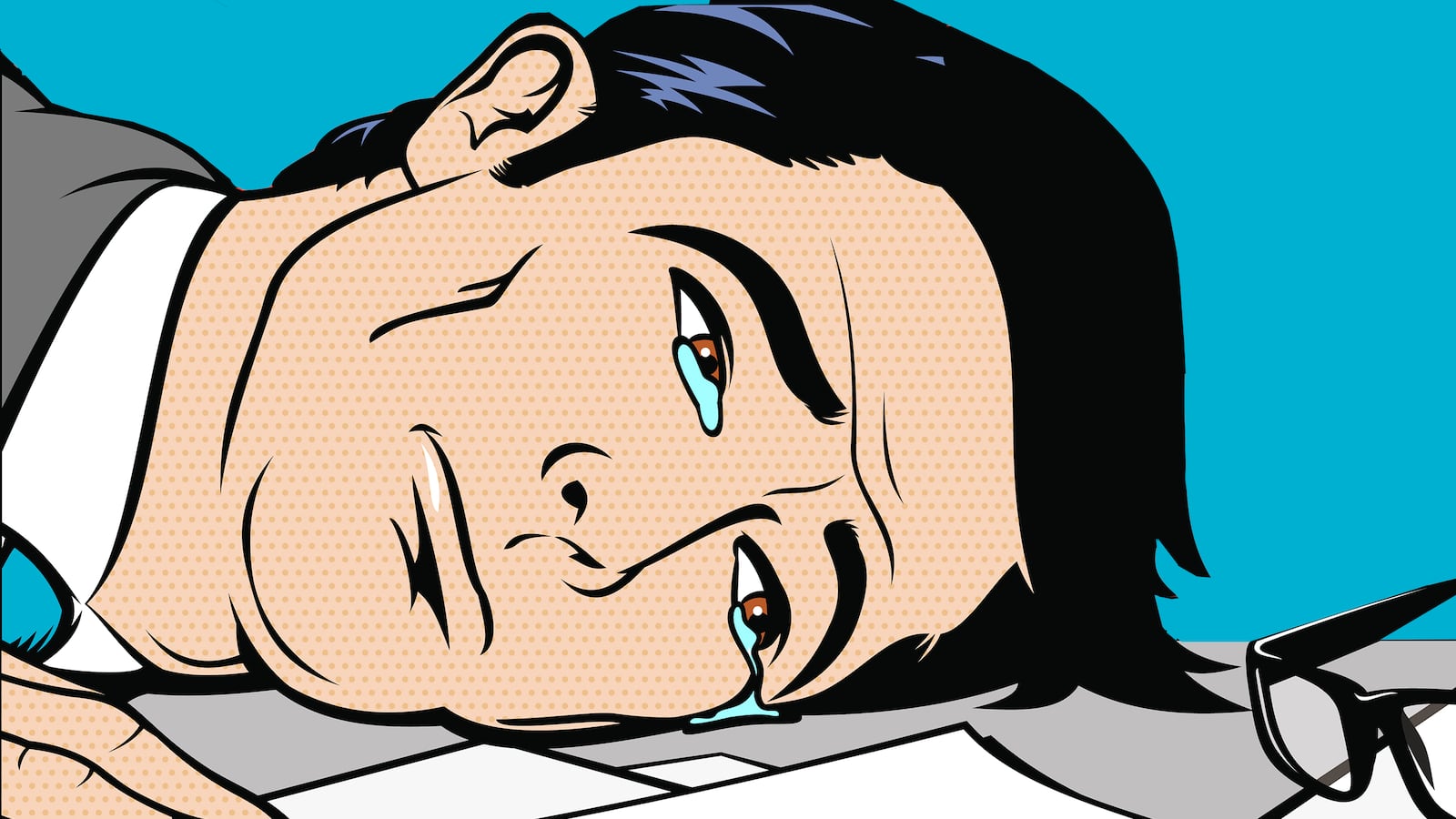I have to be honest: I really don’t understand white people. They’re confusing! I mean, white people are in charge of everything in America, they dominate government, business, finance, tech, real estate—every industry that matters—and yet guess who feels like they’re discriminated against?
That’s right, white people, some 55% of whom say whites are discriminated against in America today, according to a new NPR/Robert Wood Johnson/Harvard poll. Now, this is not entirely a surprise—a 2011 Harvard study found a similar conclusion: “Whites see racism as a zero sum game they are now losing.”
White people may be consistent but they’re still confusing. I don’t understand how people with such a tight grip on power in America could be so insecure about it. So I decided to ask some white people about it.
I started by calling white people I know and asking them why so many white people feel like they’re discriminated against. I reached out to people I like because I thought that would make it easier to have an honest conversation. I called writer Ana Marie Cox, writer Matt Taibbi, anti-racism activist Tim Wise, and radio host Charlie Sykes. I also threw the question out to Twitter—why do white people feel discriminated against?
MarthaHC in Va tweeted at me, “Almost every white person I know feels discriminated against - some rise above it, but most embrace it as an excuse for themselves.” This was going to be a trip through the looking glass.
I learned that for one thing many white people are tired of feeling like they’re racist—they talk about being blamed for crimes they didn’t commit—and that sense of being unjustly blamed for racism is part of why they feel discriminated against. Like, they’re discriminated against because they’re wrongly assumed to be discriminators.
The notion is sort of, “I’m a victim, too,” as Charlie Sykes said. “I’m not the oppressor and I’m not gonna go along with this narrative.”
Matt Taibbi said, “I do think that at the root of a lot of what is going on is this idea that they’re being villainized for something they believe they didn’t do.”
Don McClure tweeted at me to say:
When he says he feels it’s “contemptible to tolerate it,” I can hear a gut-deep resentment at the notion that he could be blamed for white supremacy — and perhaps even disgust with other white men who accept responsibility for white supremacy.
Part of what Don McClure and others are saying is not that whites are the most discriminated class, but that they are one of the discriminated classes. “I don’t think they’re saying, ‘It’s really against me,’” Ana Marie Cox said. “They’re saying, ‘me, too.’”
The NPR poll shows 84% of whites believe discrimination exists against racial and ethnic minorities in America today, so they almost unanimously acknowledge that there is racism against minorities—but they’re saying they too are discriminated against.
“They believe in reverse racism,” Cox said. “That’s what they’re talking about. Not that racism against black people is over and now we’re racist against whites, but yeah Black people have some problems, but also I do, too, or my race does, too.” Some said many white people have come to see race as a sort of card—or a cudgel—that only some people get to use and they resent that. And they are rejecting that.
Charlie Sykes said, “Others can play the race card, play the gender card. So they’re like, I want a card. I want to be part of this as well. I want to be a protected class as well.” Sykes knows there’s power in feeling like a victim.
“Back in the 90s I wrote a book called The Nation of Victims about how everyone wanted to think of themselves as a victim because that’s how you got people to pay attention to you, that’s how you got moral authority. I think the white working class has embraced that sense of victimization.”
Surely the economic troubles of the past few decades— the impact of globalization and industrialization and flat wage growth and the decline of unions and more—all of that damaged many white people’s ability to provide for themselves and their families thus making it impossible for them to understand how whiteness could be privileged.
“If you’re a blue-collar worker from rural Michigan,” Sykes said, “and your plant has shut down, your community is in decline, your family is dysfunctional and you can’t support your family, and you hear all this talk about white privilege you’re likely to react saying wait, I’m white, I’m not privileged, what about my problems?”
For people with the mindset that whites are somehow losing out to people of color, the evidence that white people are being discriminated against often lies in college admissions and in job hiring and promotion and firing. Singular examples of the white person who didn’t get the job or admission to college become fuel for the argument that white supremacy itself is in rapid decline. Many people mentioned that affirmative action is held up as proof that whites are the discriminated ones. Rachel Crawford tweeted that to many white people affirmative action “just seems like ‘favoritism” based on skin color.
Cox said, “I think a lot of people think Black people get the jobs and the money and the scholarships and white people don’t. That’s their understanding.”
The rise of Black Lives Matter has also made some feel discriminated against. “The visibility of that movement is anxiety producing for people,” Cox said. “If you’re saying Black lives matters, are you saying my life doesn’t matter?” All of that helped me move closer to understanding white people but I think I had a real breakthrough when Sykes said, “Don’t underestimate how much of it is just cultural.”
Right. I had been focused on white people’s dominance of the levers of actual power but they were focused on the shift in culture. Sykes described it as: “We’re losing the country. What I believe in is not being respected.” It reminded me of that moment during the election when a Trump surrogate was on MSNBC and he said that Mexican culture was about to take over America—there will be taco trucks on every corner, he warned, unless Mexican culture is stopped.
So much of this is about the fear that white-male-centric American culture is being pushed aside—or being replaced—by a cultural environment that’s more inclusive. It’s NFL players kneeling and transsexuals rising in visibility and Michael and Jemele taking over the 6pm SportsCenter and gay marriage being normalized and women rising up to force powerful men off their thrones. The shift they fear is not happening in policy, it’s happening in culture. Taibbi said, “If you talk to people at Trump rallies you’ll hear things like, every time you turn on the TV the bad guy is the white male.”
Or as MarthaHC in Va put it, some whites “Feel threatened, cheated, and oppressed by - my words not theirs - blacks who no longer ‘knew their place’ in society.”
How did we get here? Many laid a lot of blame on the political right—both the GOP and the right wing media cabal. For decades they have used black and brown people as the scapegoat for white problems. They have scared them with stories of black crime and they have pandered to them with stories of black laziness and its economic impact and energized them with stories of black success that comes to the detriment of some white person. Taibbi said that for over 60 years, going back to Barry Goldwater and Richard Nixon, we have had a conservative movement that used racial anxiety to draw white people into voting for them:
“There’s been a pretty intense marketing campaign directed at white America, particularly the middle class or rural suburban middle class, that has been telling them that they are losing out and that a whole variety of people are responsible for them getting a smaller piece of the pie. After 50 or 60 years of being told that affirmative action and welfare and immigration are the reasons why you don’t have a good job with benefits anymore plus the fact that some of those conditions do exist, well, eventually that propaganda will be effective.”
The right’s messaging around white victimhood and whiteness under siege was amplified by Trump and it fueled his victory. But is white victimhood something that was incepted into people by the GOP or did the right seize on a notion that was already there in white people?
Tim Wise says today’s toxic false victimhood may have roots in Nixon or Goldwater but it goes back much further, almost to the moment the slaves were freed. There was a brief period called Reconstruction in which Blacks were given rights that they had never had in this country but it wasn’t long before whites began feeling like the Negroes had gotten enough. “Whites have ALWAYS felt that we were being discriminated against every time there was evidence of black or brown progress,” Tim Wise emailed.
“So, for instance, when striking down the post-civil war, Reconstruction-era civil rights laws and policies, Justice Joseph Bradley used the language of reverse discrimination as justification when he said it was time for ‘the negro’ to stop being the ‘special favorite of the law’ and take his place among ‘mere citizens,’ ignoring of course that black folks had not been recognized as citizens at all for most of American history. When President Andrew Johnson vetoed the post war civil rights laws, he also used this language, saying that the new laws were unfair because they made a special effort to provide opportunity to former chattel (as with the Freedman’s Bank and Freedman’s Bureau) while the country had never — in his estimation — done something ‘special’ for the white race… ignoring literally everything up to that point.”
Look, I know it’s hard to feel like you really know white people after doing a few interviews. But I understand now that we’re dealing with a deeply-ingrained instinct to feel threatened by any small bit of upward movement by black people in general. Because whiteness and blackness are social constructs with no real scientific meaning—they are political groups created to help rich white people maintain power by creating an underclass—then called Negroes—that was, by definition, lesser than poor whites. If the definition of blackness changes, if the sociological stock price of blackness goes up, then that changes not only the value of whiteness but its very meaning.
And as long as superiority is part of the definition of whiteness, then any step toward equality will be seen a threat to the very essence of whiteness.






